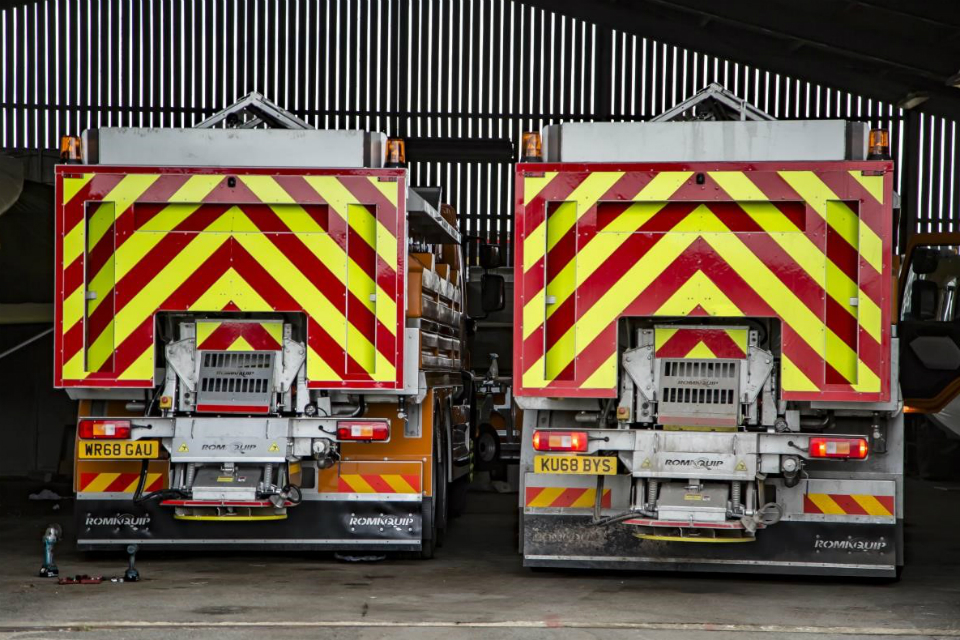Press release: UKEF supports Angolan healthcare and power infrastructure development
Baroness Fairhead announces €450 million in UK Export Finance (UKEF) support for UK firms to build three new hospitals and upgrade two power stations, improving healthcare and power provision in Angola.
Baroness Fairhead, Minister of State for Trade and Export Promotion, said:
I’m delighted that the UK Government, through UK Export Finance, is supporting these two projects. It enables a Scottish exporter to enter a global marketplace and deliver reliable power to millions of people in Angola. It also showcases how British expertise can assist the development of vital healthcare services.
This is a great example of how our ambition to grow exports, as set out in the Export Strategy, is helping British businesses break into overseas markets through support such as that provided through UKEF, our award-winning export credit agency, our teams led by HM Trade Commissioners in market and our GREAT.gov.uk website.
Opportunities for UK healthcare and construction suppliers
This is the first time UKEF, the UK’s export credit agency, has supported projects in Angola.
€380 million will go to support a contract between Angola’s Ministry of Health and ASGC UK, the UK branch of international construction firm ASGC, to build three new hospitals. The company will lead on the design, construction and equipping of the Mother and Child Hospital and Paediatric Haematology Institute, both based in Luanda, and the Cabinda General Hospital. The projects will create significant opportunities for UK healthcare and construction suppliers.
Once complete, the Mother and Child Hospital will have over 300 beds available, and the Cabinda General Hospital over 200, providing much-needed healthcare services to major population centres in Angola. The haematology unit will provide a range of specialist services including radiology, intensive care and a paediatric ward.
IQA Group, headquartered in Paisley, will upgrade two power substations in Viana and Gabela over the course of two years, significantly reducing North West Angola’s dependence on oil-generated power. UKEF will provide a guarantee to support a €70 million loan issued to the Angolan Ministry of Finance for the project.
This is the first international contract for IQA Group, which was established in 2002 and is now the UK arm of Spanish multinational Elecnor, and which is leading a consortium to deliver the work for the Ministry of Energy and Water in Angola.
Supporting economic growth and development
The project will have a transformative effect on the region’s power network, giving thousands of Luanda’s residents, as well as industry in the region, improved access to electricity to support economic growth and development.
Baroness Northover, the Prime Minister’s Trade Envoy for Angola and Zambia, said:
I have visited Angola regularly in the last two years in support of UK- Angola business co-operation, and am acutely aware of the growing opportunities there. It is wonderful that these important projects have come to fruition and I look forward to seeing more in the future.
Gregory Smyth, Managing Director, IQA Group, said:
IQA Group has ambitious plans for international growth, building on our success in the UK, and we’re pleased that UKEF, along with the DIT team at the British Embassy in Luanda, is supporting us as we enter new markets. Support from UK Export Finance is a central part of our international offer, and is supporting our operations and jobs in Scotland.
Paul Woodman, Managing Director, ASGC, said:
UKEF’s support forms a crucial component of our strategy, enabling us to grow revenues and deliver value for clients such as the Angolan government. The government’s commitment to the growth of UK exports is continuing to help us build confidence with overseas customers and with UK suppliers.
Background
UK Export Finance is the UK’s export credit agency and a government department, working alongside the Department for International Trade as an integral part of its strategy and operations.
Our mission is to ensure that no viable UK export should fail for want of finance or insurance from the private market. We provide finance and insurance to help exporters win, fulfil and ensure they get paid for export contracts.
Sectors in which UKEF has supported exports include: aerospace, healthcare, infrastructure, telecommunications and transport.
UKEF has a national regional network of 24 export finance managers supporting export businesses.
Our range of products includes:
- Bond insurance policy
- Bond support scheme
- Buyer & supplier credit financing facility
- Direct lending facility
- Export insurance policy
- Export refinancing facility
- Export working capital scheme
- Letter of credit guarantee scheme
Our country cover positions outline our current cover policy and risk appetite for each country.
Media enquiries: Claire Lynch, Media Relations Officer
Email
claire.lynch@ukexportfinance.gov.uk
Telephone
+44 (0)20 7271 8100
Mobile
+44 (0)7791 795992
Out of hours
+44 (0)207 215 2000

